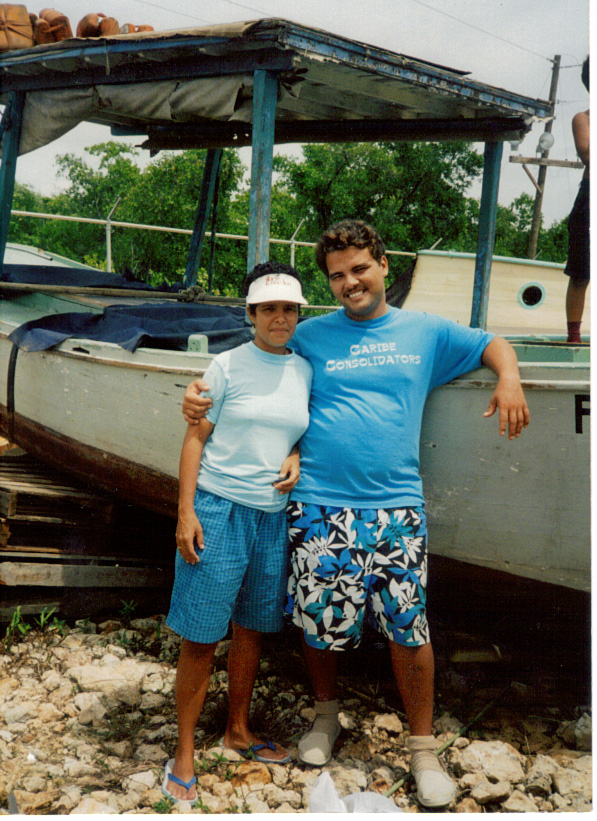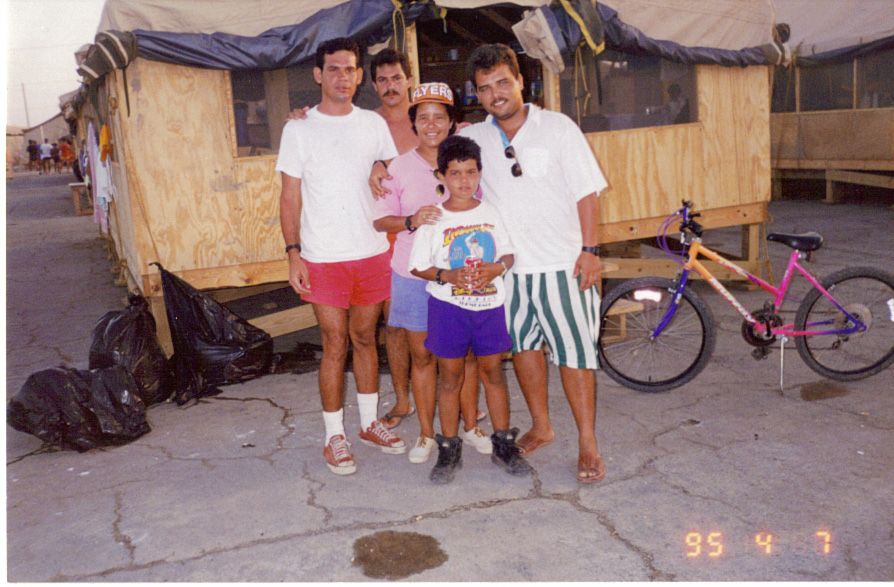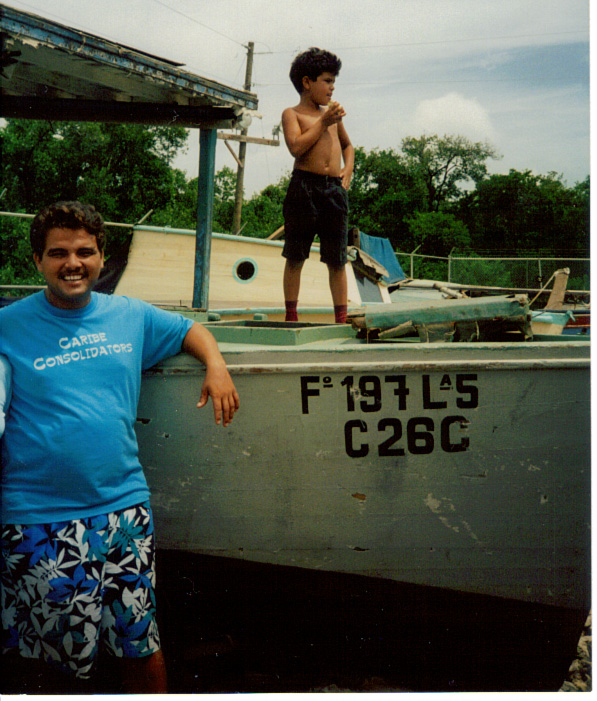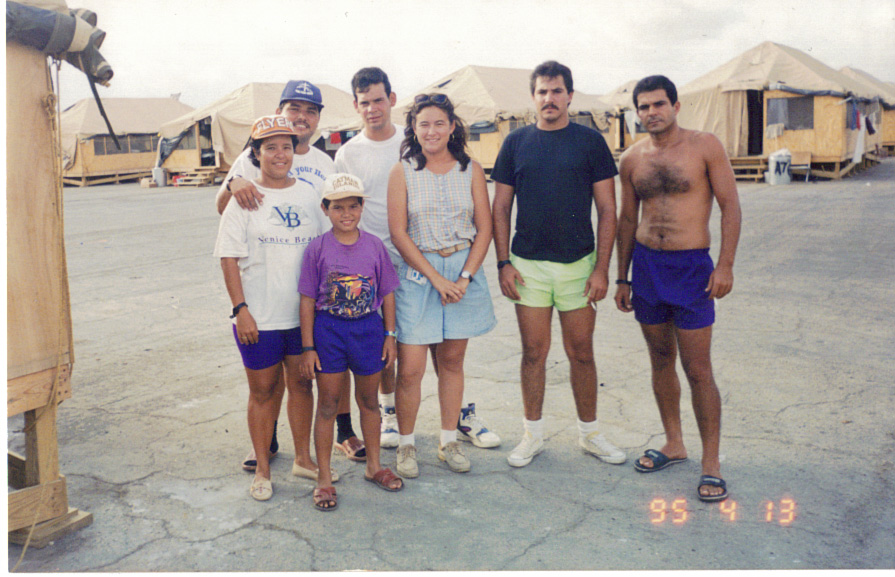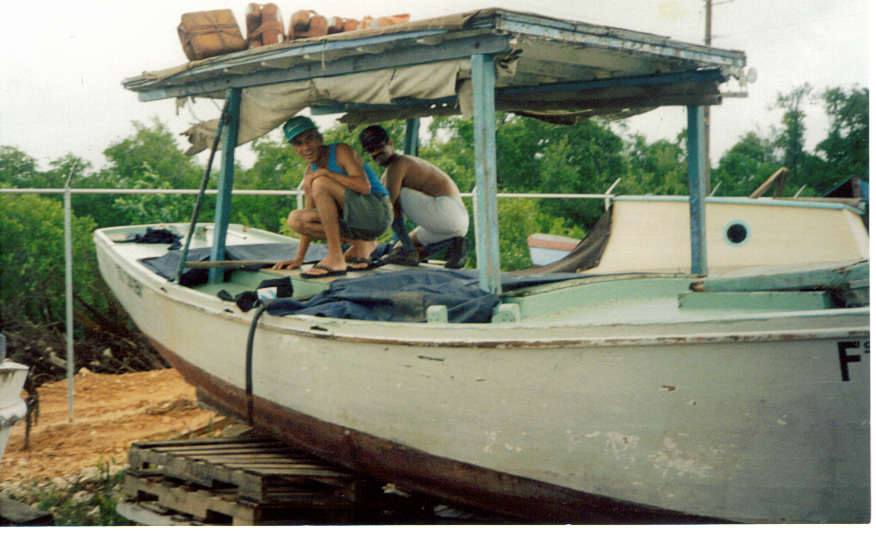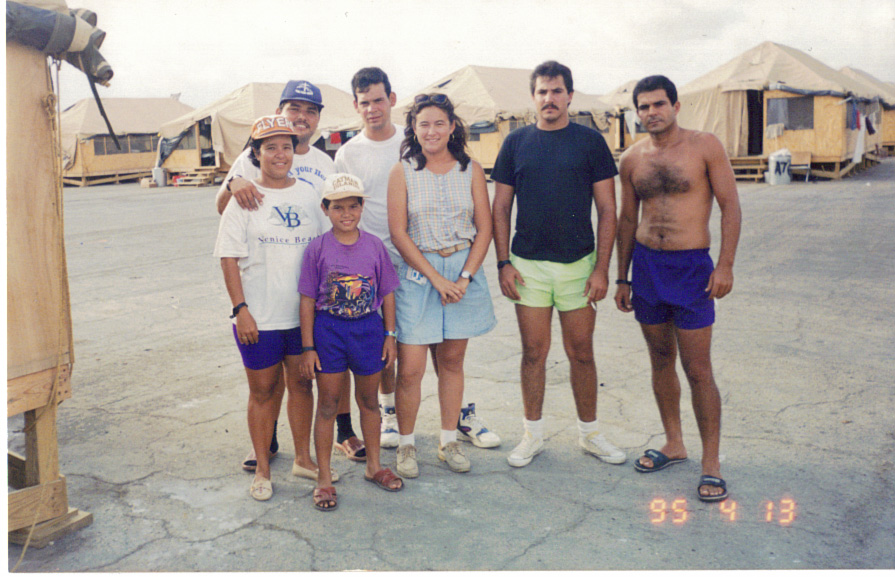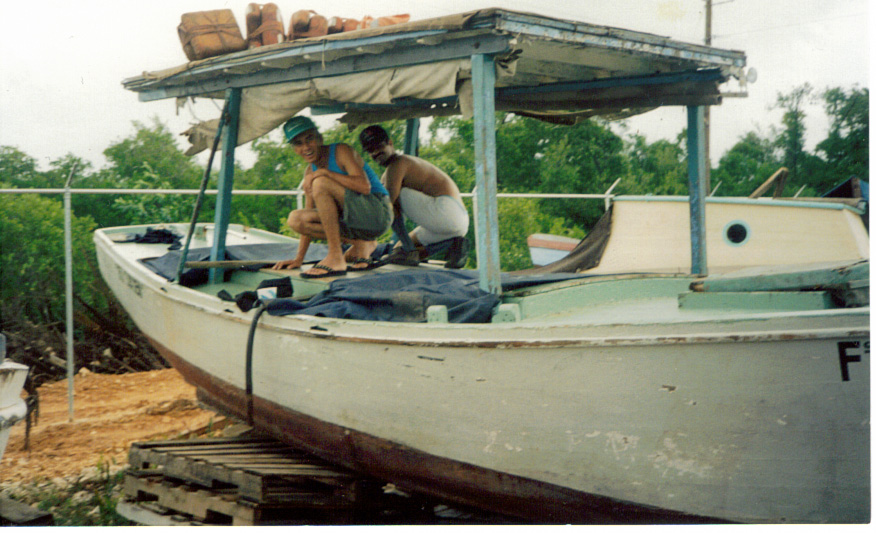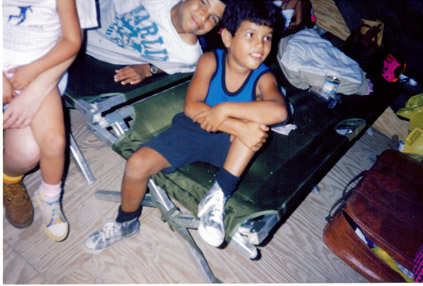Guantánamo Public Memory Project
Pavel Rodriguez
At GTMO: 1994-1995
Pavel Rodrigues was a child when he was detained with his family at Guantánamo for attempting to sail in a small boat from Cuba to the United States.
My name is Pavel Rodriguez. I am currently a fourth year medical student at Duke University. We left Cuba in September of 1994. I was actually supposed to start my first day of fourth grade and right as I was about to run out, happy with my new backpack, my parents were like, “Wait, wait! You are not going to school today. We are actually leaving.” And so, I was like, wow, ok. I had no idea this was about to happen. I mean, I knew they were meeting with people and that was… there was something going on but it was all kept in secret for worries and then if someone found out my family would get in trouble.
There were twenty-four of us. I was the only child in the boat. It was basically comprised of a group of families, the local doctor, his mother, and then other locals that I did not really know because my parents never told me this was going to happen. Eventually we made it to the Cayman Islands and after being in the Cayman Islands for several months that is when we actually made it to Guantanamo. That was in January.
As a kid, I was curious. At the same time I was kind of scared about what exactly was about to happen. I remember being in the bus and looking outside the window and I would see hundreds and hundreds of people – refugees – behind fences. When I got through the gate of the camp, all I could see was like a sea of tents. If you imagine like a giant parking lot and the parking lot was all asphalt and then it was surrounded by fence with barbed wire on top of the fence and then towers where… so the military could keep track of what was going on.
Our meals consisted of food wrapped up in these plastic bags. They were different colored bags and quickly people realized which ones were the better ones. I remember the white bag was the really spicy one – nobody liked that. That was more of like a southwest kind of cuisine and people hated that one so we always liked the darker plastic bags, which were more of like meats and cookies and things like that.
We ended up – a lot of the kids – ended up making kites. We made kites out of wooden sticks and we got paper. We ended up sort of competing with each other, you know? You put little shaving things on your kite and it was like kite fighting. The army people were very friendly. I actually ended up learning a little bit of English from them. I would ask them and they were like, “Yea! I’m from Chicago!” I had never heard of these cities and I am like, “Oh where is that?” And I would tell him, “Oh, I’m from Cuba… We’re still in Cuba. This is Cuba but…”
You know, we were treated in such a way that allowed us to come… to sort of recuperate from that. That is why I think people should understand what happens to massive people who are basically a normal society and then locked up in a camp and then held there in many months of uncertainty. how does that impact them, you know?
Creative: Picture Projects & Tronvig Group

